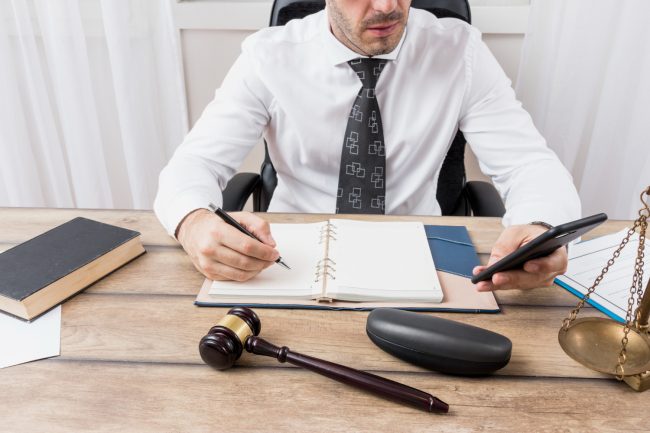
Because your car insurance will almost certainly cover any damage caused by another driver who causes an accident, you are liable when an accident is caused when someone else is driving your car. It will show up on your record. It may affect your insurance rates. If your vehicle is taken without your consent or the driver does not possess a valid license, the driver is responsible.
Permissive vs. Non-Permissive Car Usage
Whether or not your insurance coverage kicks in if another person is involved in an accident while driving your car may be determined by whether or not you allowed them to borrow it. This kind of use is referred to as “permissive” or “non-permissive.”
Non-Permissive
Suppose a friend or family member takes your car without your permission and causes an accident. In that case, you may be held harmless because your friend’s insurance may be considered primary if they drive your vehicle without your consent and cause an accident. Even if your friend does not have any insurance, your policy may cover the accident. If, on the other hand, a criminal takes your car and causes an accident, you will not be held liable for the other vehicle’s damage and repairs. However, you may need to file a claim with your insurance company to cover the cost of repairs to your car.
Permissive
According to Nolo.com, most automobile insurance policies cover drivers you specify on the policy or anybody you permit to drive your car. This means that if another driver is involved in an accident while using your vehicle with your permission, your insurance will most certainly cover them. Bear in mind, though, that some states may provide less coverage if you allow others to drive your automobile.
Take care to review the terms and conditions of your policy or consult with an insurance agent to ensure that you understand what is covered in your state. Additionally, you may want to speak with your insurance agent about the possibility of excluding drivers from your policy.
How Do You Prove Your Permission?
It’s exceptionally challenging to demonstrate that someone has permission to operate your car. If an accident happens and you cannot prove that you consented, you may be required to pay for the resulting damage.
Suppose an individual has a poor driving record, and you are aware that it would increase your insurance premiums. In that case, you may opt to remove them from your coverage if allowing someone else to drive your car results in an accident. Your insurance company will not be responsible for the damage.
Finally, if the driver of your car is committing a crime, you may be held liable for their acts. There are various examples of this, including driving while intoxicated or without a valid driver’s license.
Supplemental Coverage with Driver’s Insurance
If the individual driving your car has their own auto insurance coverage, you may be allowed to utilize it as a supplemental insurance source. Although this is a widespread vehicle insurance misunderstanding, a non-owner driver is not entirely liable. In this case, the primary coverage would come from your automobile insurance.
For instance, an accident involving your car might be caused by another driver. Because the other driver was at fault in your vehicle, your insurance company is responsible for the damage. Nonetheless, your coverage compensates for damage up to a certain amount. If your policy limits are exceeded, you may be able to depend on the driver’s insurance to cover the remaining costs.
What Happens When Your Insurance Refuses to Pay?
Damages to your vehicle may not be covered if another person was driving it at the time of the accident and any of the following apply:
- Without your agreement, your car was seized from you.
- Your insurance policy does not cover the person who is driving your vehicle.
- The motorist is impaired by drugs or alcohol or lacks a valid driver’s license.
Insurance Rates After Someone Has an Accident with Your Car
Even if you were not driving at the time of the accident, the event might affect your insurance rates. Your insurance rates may not instantly increase because you are involved in an accident. However, suppose you have been involved in another accident within a short time before the one in which you collided with another vehicle. In that case, your insurance company is more likely to raise your rate, revoke your safe-driving discount, or cancel your coverage.
Forgiveness of accidents is a possibility worth considering if you are very worried about them. Following an accident, several insurance companies provide “accident forgiveness,” which may keep your rates from increasing. It is often offered as an add-on to basic insurance and may be restricted to drivers who have accumulated a certain number of accident-free years. Additional ways to save money on your rates include the following:
- Bundling your home and auto insurance policies
- Comparing insurance quotes for a new car
- Increasing your coverage limits or deductibles
- Taking advantage of available auto insurance reductions
Different Third-Party Driver Accident Scenarios
In some cases, you can avoid having to worry about insurance. If your friend drives your car and is involved in an accident, the other driver’s insurance will cover the costs and damage.
If your friend caused the accident, your insurance situation might worsen. Your insurance will cover the property damage if no one is injured. If you do not have collision coverage, you will be responsible for the repairs. Then there’s your deductible.
If you were injured in an accident, your insurance company might reimburse you for your medical expenses after Personal Injury Protection (PIP) coverage has been applied. If the injuries are severe, your friend’s coverage may be added on top of yours to ensure the sufferer receives the appropriate amount.
Your friend might not have insurance. This is treacherous because there is no other insurance plan to cover the additional costs. Because it was your car, your insurance may cover the rest of the expenses, which could be substantial. Check their insurance before letting a friend borrow your car. If they don’t, don’t let them drive your car because you could be sued if an accident occurs.
You may not have considered one other scenario: car theft and subsequent collision. If it’s a stranger, you’re not liable for the other person’s injuries, but your collision insurance will cover the damage to your car.
It is not easy to prove that a friend stole your car because they did not have authorization. You must persuade the insurance company. If they believe you, their insurance will cover the damage. If the insurance company does not believe you, you may need to retain the services of a car accident lawyer.
If someone else is driving your car and an accident happens, it is prudent to have an experienced attorney on your side. The Law Offices of Pit Martin have assisted countless people in obtaining the justice they deserve.
Link arms with fellow legal enthusiasts on our Legal Blog journey; stay connected, stay informed, and let your reputation as a top immigration lawyer in the USA shine through your contributions as a writer for us legal.
